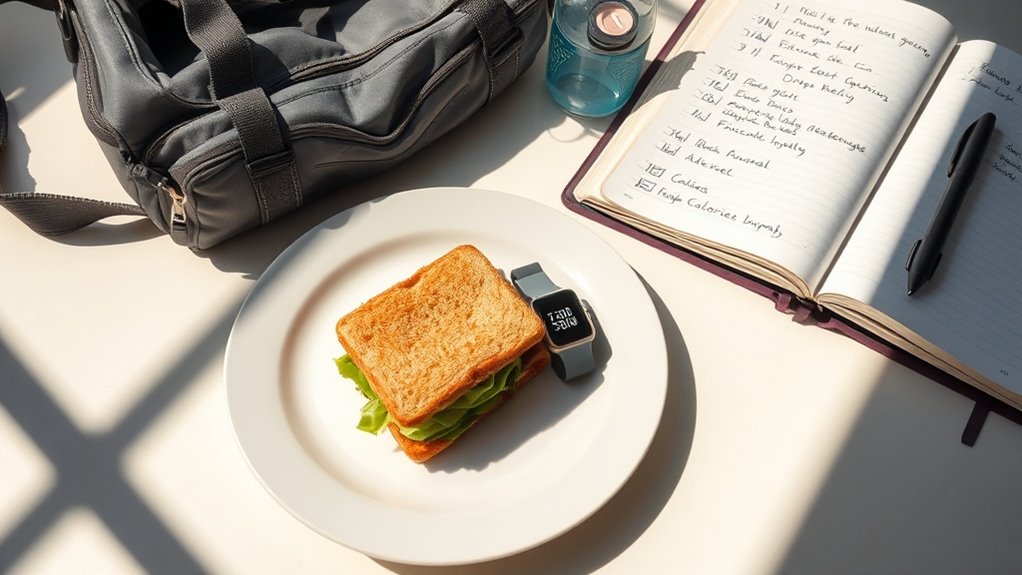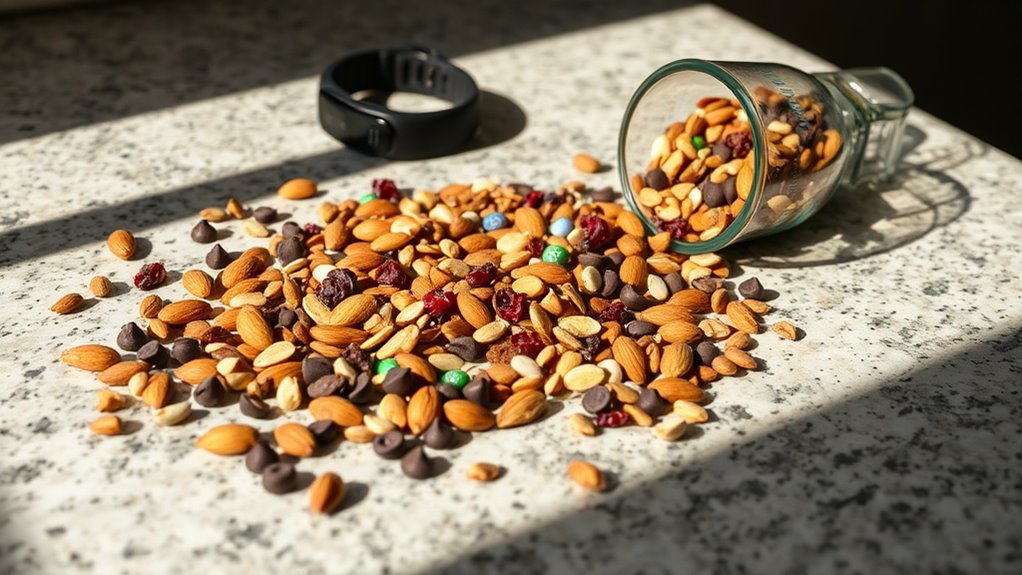Why You’re NOT Losing Weight – The Surprising Mistakes You Make!
You’re probably sabotaging your weight loss efforts without realizing it. Hidden calorie consumption from seemingly healthy snacks or dressings can add up quickly. You might also be underestimating portion sizes, leading to unwanted extra calories. Plus, neglecting physical activity can stall your progress. Stress and emotional eating can pull you off track, and a lack of sleep disrupts hormone regulation, making cravings harder to manage. There’s more to uncover about these surprising mistakes and how to overcome them.
Hidden Calorie Consumption
Even if you think you’re eating healthily, hidden calorie consumption can sabotage your weight loss efforts. You might be surprised to learn that those “healthy” snacks, dressings, or beverages could pack in more calories than you realize.
When you’re trying to lose weight, every calorie counts, and overlooking these sneaky additions is a common weight loss mistake.
Take a closer look at your daily habits. Are you adding extra olive oil to your salads or indulging in those seemingly harmless smoothies? These small choices can add up quickly, derailing your goals without you even noticing. Additionally, many grocery store health foods can create an illusion of nutrition, leading to poor choices and hidden sugars that contribute to weight gain.
To make real progress, start reading labels and tracking your intake. You’re not alone in this journey, and being aware of hidden calories can help you connect with others who share similar struggles.
Embrace this knowledge, and you’ll be on your way to achieving the results you desire while building a supportive community around you.
Improper Portion Control
While you might think you’re making healthy choices, improper portion control can easily hinder your weight loss efforts. It’s all too common to underestimate how much we’re actually eating. That salad you believe is a smart choice? If it’s piled high with dressing and toppings, you might be consuming more calories than a burger!
Learning what a proper serving looks like is crucial. You don’t have to weigh every morsel, but being mindful of portion sizes can help you stay on track. Use smaller plates, or measure out servings until you get a feel for it. Additionally, managing caloric intake is essential for effective fat loss and can greatly impact your results.
Sharing meals with friends can also help; it encourages you to focus on enjoying the food and prevents you from going overboard.
Neglecting Physical Activity
When you focus solely on your diet, neglecting physical activity can significantly stall your weight loss progress. You might think that cutting calories is enough, but without movement, your body isn’t burning off the energy you’re consuming.
Incorporating regular exercise isn’t just about burning calories; it boosts your metabolism, enhances your mood, and builds muscle. Additionally, engaging in strength training can help increase muscle mass, which naturally elevates your metabolic rate.
Being part of a community that values fitness can make all the difference. Whether you join a local gym, attend group classes, or find workout buddies, having support encourages consistency.
You’ll find motivation in shared goals and celebrate milestones together.
Try to mix it up with activities you enjoy, like dancing, hiking, or cycling. This way, it won’t feel like a chore but rather a fun part of your daily routine.
Stress and Emotional Eating
Physical activity isn’t the only factor affecting your weight loss. Stress and emotional eating can derail your efforts without you even realizing it. When life gets overwhelming, it’s easy to reach for comfort foods that provide a temporary escape. But these choices can lead to weight gain and feelings of guilt.
Consider how stress impacts your eating habits:
-
You might find yourself mindlessly snacking on chips while binge-watching your favorite show.
-
You could be indulging in rich desserts after a long day, seeking solace in sweet flavors.
-
You may even skip meals when stressed, only to overeat later to compensate.
Recognizing these patterns is the first step towards change. Surround yourself with a supportive community that understands your journey.
Together, you can learn healthier coping mechanisms that don’t involve food, helping you get back on track with your weight loss goals. Additionally, stress triggers hormonal changes that lead to increased belly fat, making it even more crucial to manage stress effectively.
Lack of Sleep and Recovery
Sleep plays a crucial role in weight loss, yet many people underestimate its importance. When you don’t get enough rest, your body struggles to recover and regulate hormones that control hunger. This can lead to increased cravings and poor food choices, making it harder to stick to your goals.
Here’s a quick comparison of how sleep impacts your weight loss journey:
| Sleep Quality | Weight Loss Impact |
|---|---|
| Poor Sleep | Increased cravings |
| Moderate Sleep | Balanced hormones |
| Good Sleep | Enhanced recovery |
| Excellent Sleep | Optimal weight loss |
| Consistent Sleep | Sustainable results |
Prioritizing sleep isn’t just about feeling rested; it’s about supporting your body’s efforts to shed pounds. When you value your sleep, you’re not only investing in your health but also fostering a supportive environment for your weight loss journey. Additionally, adequate rest helps regulate hunger hormones effectively, making it easier to manage cravings and food choices.





